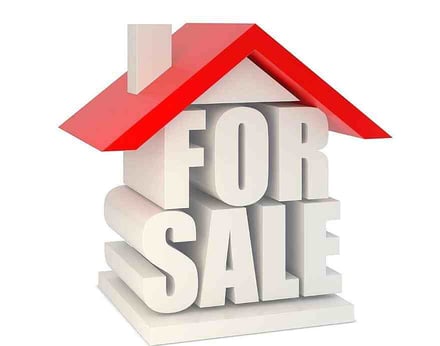Is a Zero-Down Home Loan a Good Idea?
If you’re eager to buy a home but have no money for a down payment, you might be tempted to sign-on for a zero-down home loan.
While the idea of getting a new set of house keys without dropping any money at the bank may seem enticing, there’s typically a downside to something this easy.
What are zero-down mortgages?
It’s probably been a while since you’ve heard anyone talk about zero-down home loans. That's because they’ve been absent from the market for a while, but they’re starting to make a comeback.
Simply put, zero-down mortgages are loans that 100% finance the entire purchase price of a home, eliminating the need for a down payment.
Can you really buy a home without a down payment?
Yes, there are a few loans that don’t require a down payment. But be aware: they come with fees that get added to the loan.
The loans that don’t require a down payment include:
- Department of Veterans Affairs Loans (VA Loans), which are available for qualified veterans, active-duty service embers, and certain members of the National Guard and Reserves. Even though this loan requires no money down, there are fees that can range from 1.25% to 3.3%.
- Department of Agriculture or USDA’s Rural Development mortgage guarantee program. To qualify for the USDA loan, you have to live in an eligible area, meet certain household income requirements, and be a first-time homebuyer (although there are a few exceptions). Like the VA loan, the USDA loan comes with fees. There is a 1% up-front guarantee fee and an annual fee of 0.35% of the loan balance.
Additionally, there are some special programs such as the Doctor Loan Program that offers a zero-down payment for those who qualify. Certain credit unions also offer these types of loans to members.
But more than likely, you’re going to come across low down payment loans that require you to put some money down. The amount you put down on these loans can be as low as 1%, but typically, you can expect to put 3% to 5% down.
It’s also important to note that a lot of these loans will require you to carry private mortgage insurance, or PMI, which can add hundreds to your monthly bill.
See also: Buying a House in 2019? How to Get Your Finances in Shape
What are the pros and cons of no-money-down home loans?
Imagine being able to walk into a bank without a down payment and walk out with the keys to your new house. Sounds pretty close to perfect, right? However, there are some things you should watch out for if you're considering a zero-down mortgage.
When you take out a zero-down loan, you are susceptible to higher interest rates because the lender sees you as "high risk."
Plus, you end up financing more. This requires you to pay more interest over time. Simply put, if you borrow more money up-front, you will have a higher monthly mortgage payment.
The obvious “pro” of a zero-down loan is the door it opens if you can’t afford to put money down. This type of mortgage levels the playing field and makes home ownership easier to attain if you have limited funds and can qualify with a lender.
But that may be the only pro that comes with no money down.
See also: Is a House a Good Investment? Pros and Cons to Consider
When is a zero-down home loan a bad idea?
Ideally, if you can put some money down, you should skip the zero-down home mortgage.
Even opting for one of the low down payment loans can help you qualify for a lower interest rate and better terms. Plus, you will save thousands in interest and pay less money over the life of the loan.
A zero-down home loan is a bad idea if you’re buying a home in a less-than-ideal market. If you put no money down and the market takes a nose-dive, the value of your home will go down (this is where the term “underwater” comes from). You could find yourself owing more than your home is worth.
One other reason to avoid zero-down loans has to do with building home equity. If you put no money down at the start of the loan, you’ll have no equity built up.
Why is that such a big deal? Well, let’s say you have a major home emergency, such as your roof caving in. If you have equity built up, you may be eligible for a home equity loan or a home equity line of credit (HELOC) to help you pay for the repairs.
But building equity takes time and money. If you opt for a zero-down loan it will take a lot longer to build equity.
When is a zero-down home loan a good idea?
A zero-down home loan is really set-up to help you get into a home if you don’t have the money saved up to put towards the loan right away. It’s also a good idea if you plan on staying put for a few years.
However, before you take on the loan, make sure you have enough cash in your budget to make the monthly mortgage payments
The bottom line is this: it’s best to put some money down because it will save you thousands in the long run.

